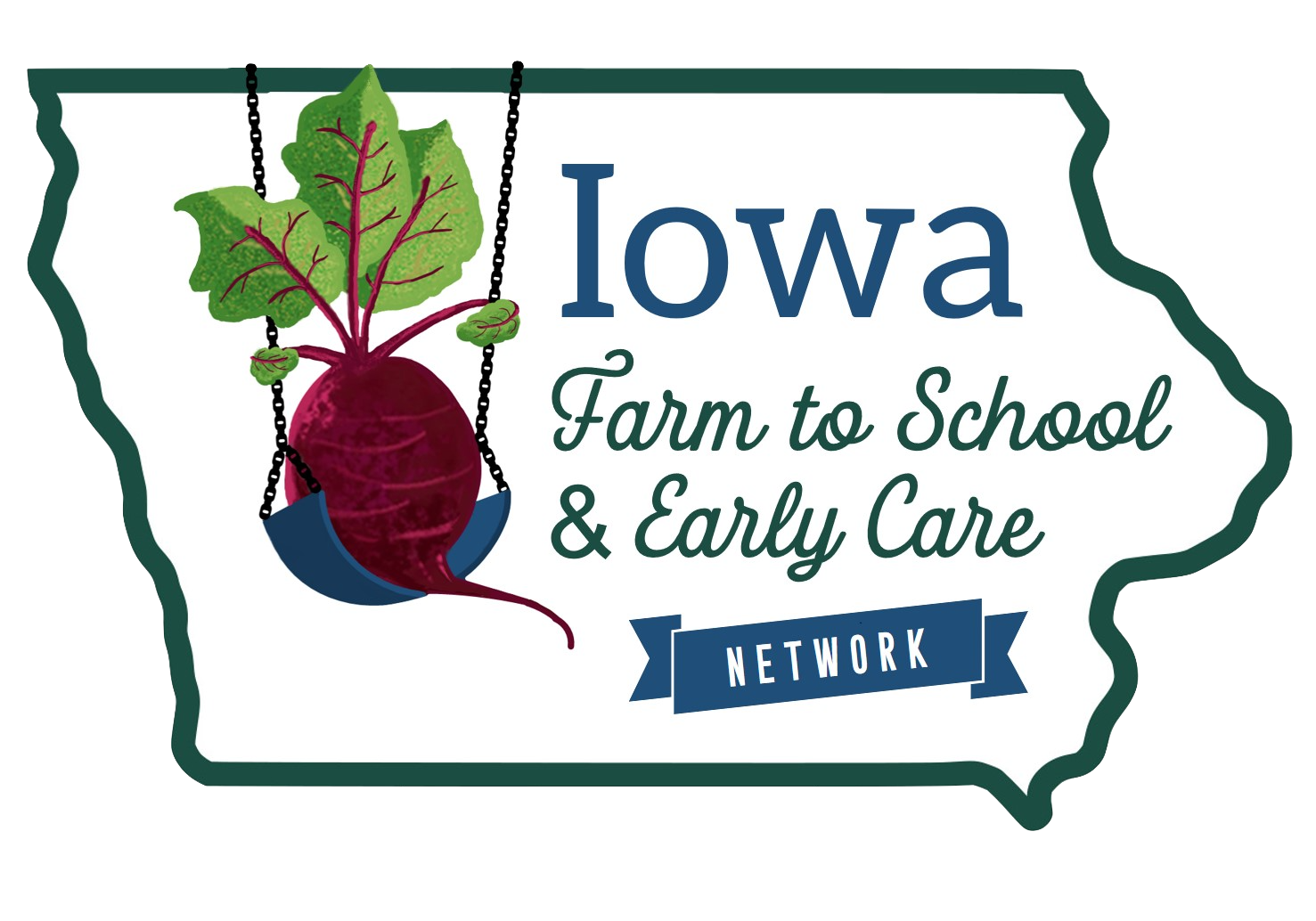Delicious Farm to School Menus
Schools can choose any Iowa-grown or produced item to feature in meals that day - or that week. Here are some suggestions that have been well-received in Iowa schools.
Fresh Fruit and Veggies
Wash. Slice. Serve.
Apples, pears, watermelon, cantaloupe
Tomatoes, cucumbers, snacking peppers
Radishes, salad turnips, summer squash slices
Broccoli, cauliflower, kohlrabi
Salad greens, spinach
Entrees
Side Dishes
Here are Iowa school-tested recipes:
Iowa Breakfast Ideas
-

Before Deciding to Purchase
Look over your menus and recipes. What items are you already purchasing processed that with a little more preparation you could purchase fresh? What new items could be added?
Make your decisions early. Purchasing fresh produce requires advance notice and time for the farmer to plan – the earlier the better.
Payment. How are you going to pay the farmer? Does the school need a statement, invoice or purchase order? How often and when will the farmer be paid? What lead time is needed by your school to add a new vendor?
-

What to Ask the Vendor
Farm and Production Practices. Asking how a farmer grows, harvests, handles, packages and transports his produce is vital to ensuring food safety. What is the water source? Is water protected from contamination? Are containers used to harvest and transport food cleaned and sanitized before each use? Is produce kept at appropriate temperatures? Are storage, packing and holding areas protected from pests?
Worker Sanitation and Safety. Are hand washing facilities available to workers before, during and after harvest? Are different gloves used for harvesting and packing? Are hands washed properly before packing produce? Are ill workers handling produce?Communication Questions. What is the price of products? What if the order can not be filled? How often and who will deliver the product? How far in advance should the order be placed? What is the best way to place orders – phone, FAX, mail, email?
Specifications. Discuss desired size, quantity, condition, package unit and other information about the produce – what does the farmer need to know? Are substitutes acceptable and if so, what? What is inappropriate packaging?
-
Developing Relationships
Always meet face-to-face. Schedule tours of the kitchen and of the farm. Share school menu and list of farmers products. Ask farmer if willing to participate in school activities to promote fresh, local foods.
Be Flexible. The farmer may be willing to grow different items. The school may be able to accept substitutes if a crop fails. The more everyone is able to work together the more likely to develop a long-term successful relationship.
Everyone should be talking. Make sure everyone knows you are using locally grown produce and about the farmer who grew it. Contact local newspapers. Ask, or create, materials to learn about and promote the farmer and their produce. Ask PTA/PTO, teachers, parents and students to assist.



